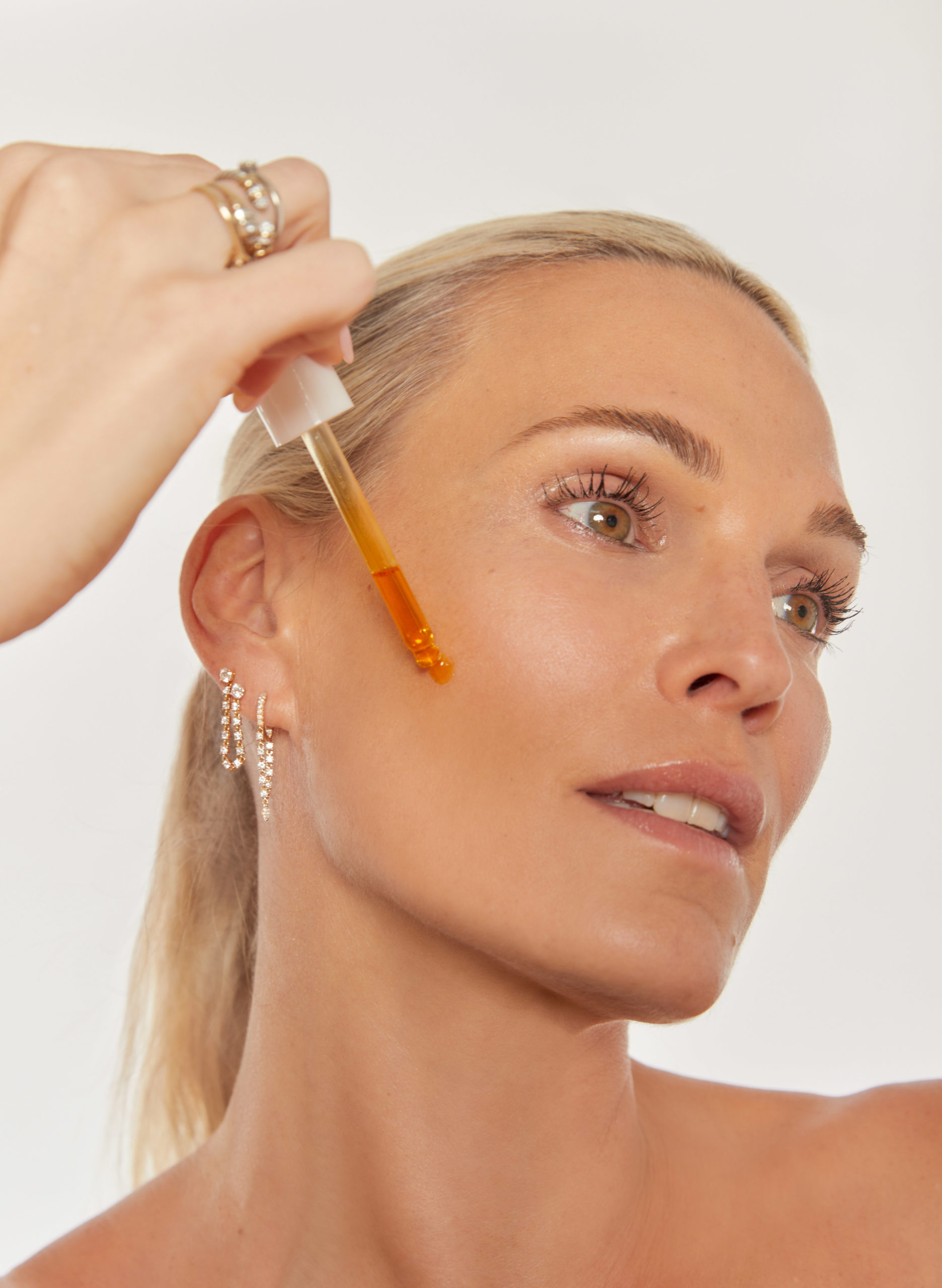Beauty...

By Melissa Epifano
One of the most mystifying parts of a good skincare routine is sorting out your serum situation. Finding the right cleanser seems pretty straightforward, as does discovering your holy grail moisturizer. But reviewing the seemingly endless list of serums that are out there to shop and deciphering all the different purposes they serve can make you want to curl up and take a nap. It doesn’t help that not all serums have the same spot in your regimen. It’s tempting to just stick with whatever is already on your shelf — but hear us out first.
Serums can be a vital part of achieving a complexion you feel good in.
Although every person’s texture, tone, and routines are different, some serums work well for multiple skin types. Others may be better suited depending on your own genes and how your skin reacts to outside factors and products. Here’s what to know when it comes to finding a serum that’s fit for you depending on your skin type, whether it’s dry, oily, mature, or acne-prone.
Putting serums overtop of oily skin can feel risky, but with the right ones, your complexion will thank you. You may not need as much oil or hydration as other skin types, but they still should be a big part of your routine. While “astringent” or “oil-free” may sound enticing, these can mess with your skin and aren’t always necessary. It’s important to find a good balance. And serums that hydrate your skin without contributing to excess oil production are key to go from greasy to glowy.
An exfoliating serum or ones that bust clogged pores can also be useful to help with the texture and appearance of your skin. And, although not everyone with oily skin has acne — and vice versa — if you do deal with blemishes, clarifying serums can also be helpful. But, as noted, hydration is important, too, and hyaluronic acid and niacinamide might be worth turning to.
Dry skin often needs a little extra love in the hydration department — something that serums are definitely able to help with. And in doing so, finding your go-to serum for dry skin will help add additional moisture or oil that your skin may naturally be missing. Ingredients like hyaluronic acid, vitamin B, and ceramides can all be extremely beneficial for this purpose. Anyone with dry skin may also find that exfoliation is pretty vital, too, to keep any flakiness or dry patches from worsening or affecting the rest of your skincare and makeup routine.
It’s worth mentioning that dry skin isn’t the same thing as dehydrated skin. If you’re used to falling under a different category, or dryness usually isn’t an issue for you, your skin may be dehydrated — which is a condition, not a skin type — and the protocol is a bit different in comparison.
Combination skin is basically what it sounds like. It’s typically a mix of different skin types, with many people often having oilier parts of their visage (usually the T-zone) and drier patches or areas. But combination skin can also include blemishes and other skin conditions.
Serums best suited for this skin type usually contain ingredients that can excess oil at bay but also work to hydrate the areas where dryness seems to rule. A good peeling serum can be fabulous when paired with a moisturizer as it targets uneven texture and any dullness. Lackluster skin can be brightened with vitamin C, too. And don’t forget ceramides (or other famed hydrating components) to keep things plump and supple.
Mature skin may lose natural elasticity over time as well as oil and moisture. To target this, hyaluronic acid, marine extracts, and vitamin E will be great additions to your arsenal. Wrinkles, fine lines, dullness, and pore size may also be things you’re looking to target. In that case, ingredients such as retinol, AHAs and BHAs, and vitamin C are key.
As a side, just because you have mature skin doesn’t mean problems like acne, combination areas, and oily patches won’t arise, and don’t feel like you’re confined to the mature skin serums of the world. Look into formulas for your usual skin type, too, so you can target and treat your way to a complexion that makes you feel confident.
Blemishes can be a pain to deal with, and at times it can be frustrating trying to find products that heal rather than exacerbate the problem. It’s always best to speak to a dermatologist or doctor to ensure you’re in the know about the best methodologies, treatments, and products. But there are a few general rules of thumb that might be worthy considerations for your dream skincare routine.
There are a lot of different types of acne and blemishes, too, which can make figuring out the problem more difficult. The most common types include whiteheads, blackheads, cystic acne, pustules, and papules. In general, clarifying serums are great for frequent breakouts. Retinol is another superstar ingredient that doubles as an anti-aging bonus. Hydration is also huge — yes, even if you have oily skin! — so be gentle with yourself and make sure your serums aren’t too harsh or dry your skin out completely.